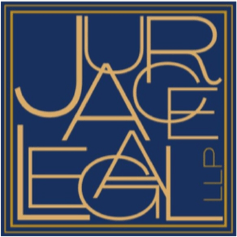In a recent case titled ‘Susela Padmavathy Amma Vs. M/s. Bharti Airtel Limited’, the Supreme Court rendered a significant judgment regarding the liability of company directors under the Negotiable Instruments Act, 1881 (“N.I. Act”). The Court’s ruling, delivered by a Bench comprising Justices B.R. Gavai and Sandeep Mehta, clarifies the circumstances under which a director of a company can be held liable for the dishonour of a cheque under the N.I. Act.
The case involved the reversal of a High Court order that had declined to quash pending proceedings under Section 138 of the N.I. Act against the accused/director of the company. The Supreme Court emphasised that to establish a director’s liability under Section 141 of the Act for offences committed by the company, there must be specific allegations demonstrating the director’s responsibility for the conduct of the company’s business.
The Court’s judgment underscored the principle that mere directorship does not automatically render an individual liable under the N.I. Act. Instead, liability attaches only if, at the relevant time, the director was actively involved in and responsible for the company’s affairs. The Court stressed the importance of pleading specific averments detailing the director’s role in the day-to-day operations of the company to establish liability under Section 141.
In essence, the Supreme Court held that a director cannot be held liable for the dishonour of a cheque unless it is proven that the director had a significant role in managing the company’s affairs. The Court further clarified that the complainant must demonstrate how the director was in charge of and responsible for the company’s operations at the time of the alleged offence.
In the case at hand, the complainant filed a complaint under Section 138 of the N.I. Act against the appellant, citing her position as a director of the company. However, the complainant failed to provide sufficient averments demonstrating the appellant’s involvement in the day-to-day affairs of the company.
Upon review, the Supreme Court found that the mere directorship of the appellant did not establish her awareness of the company’s operations. Moreover, the allegations made by the complainant were inadequate to invoke Section 141 against the appellant, as they did not delineate the appellant’s responsibility for the company’s conduct when the cheque was dishonoured.
In conclusion, the Court ruled that without specific averments showing the director’s active involvement in the company’s affairs, liability cannot be imposed under the N.I. Act. Accordingly, the Court quashed the pending proceedings against the accused, reaffirming the principle that directorial liability under the Act necessitates a clear demonstration of responsibility for the company’s day-to-day operations.
Disclaimer: This article is for informational purposes only and does not constitute legal advice. The content may not reflect the most current legal developments and is not guaranteed to be accurate, complete, or up-to-date. Readers should consult a qualified legal professional before taking any action based on the information provided. The authors and publishers disclaim any liability for any loss or damage incurred as a result of reliance on this article. This article does not create an attorney-client relationship.

